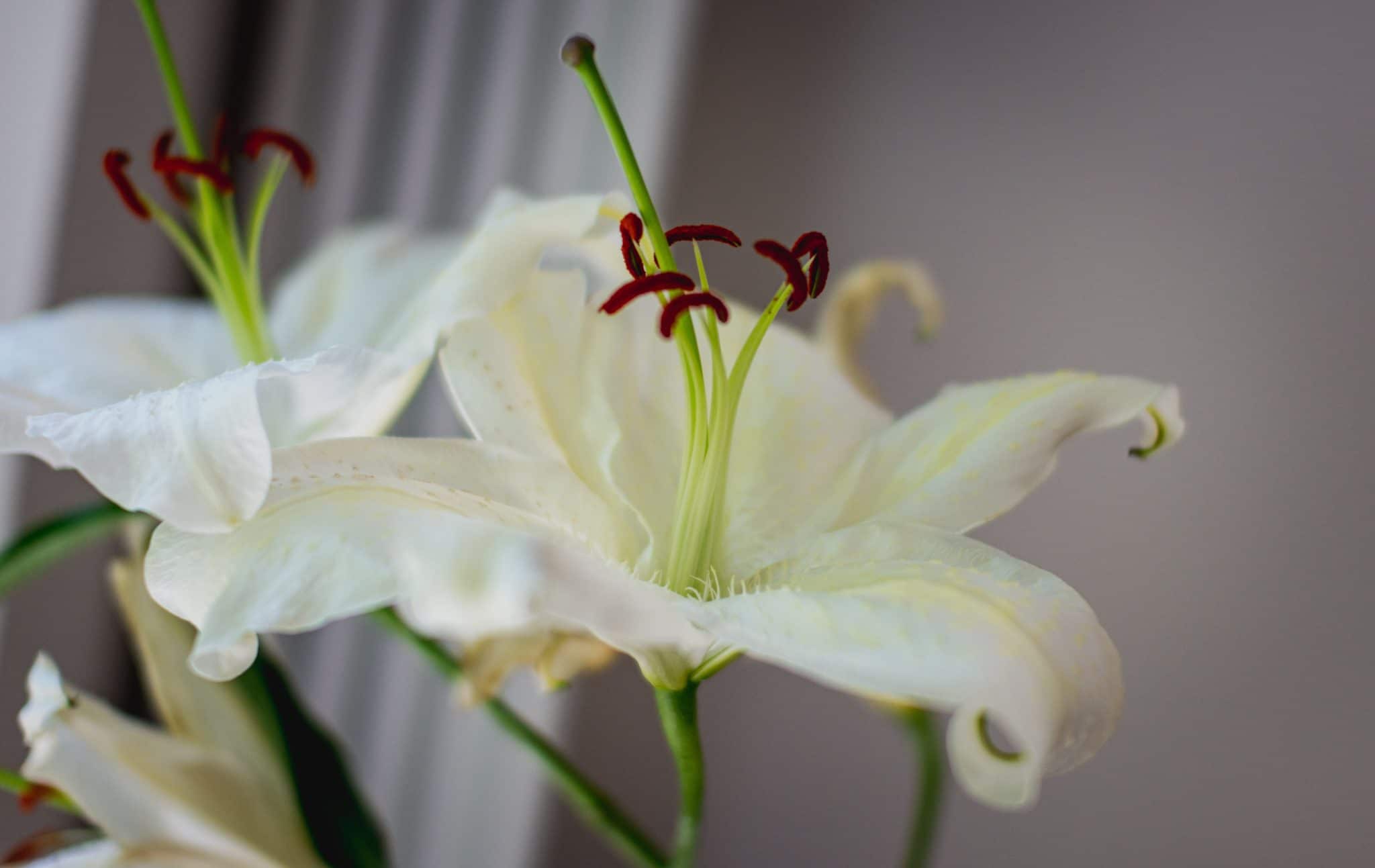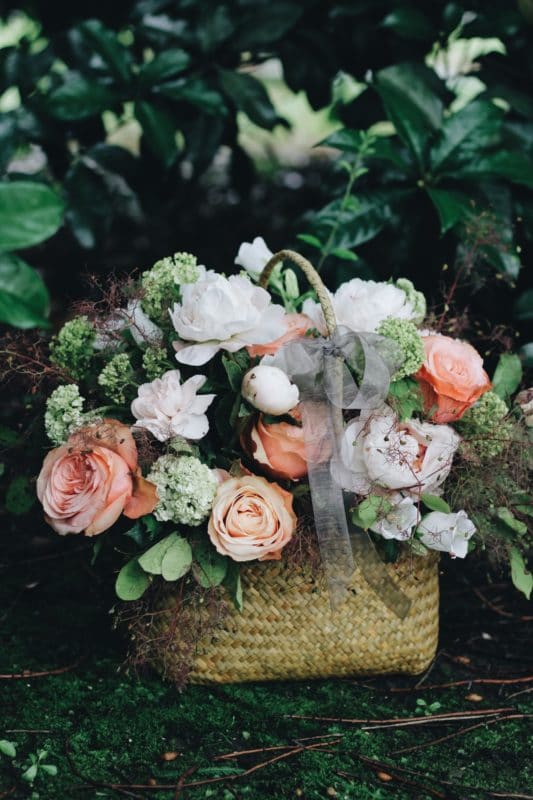
Thinking of funeral flower ideas can be a difficult task when your loved one passes, but honoring our deceased loved ones with funeral flowers has been a tradition for centuries. It’s no surprise, given that flowers have been used to convey emotions and feelings for as long as we can remember. Flowers can be used to convey feelings in a way that words often fail.
Historical Uses of Funeral Flowers
Currently and in recent history, we’ve used flowers to convey thoughts and emotions. We also use flowers to add beauty to a room, or to brighten up an otherwise difficult or somber time. Sending flowers to those grieving the loss of a loved one can be a way to extend love and support while reminding them that they are in our thoughts as they grieve.
But if we go back a bit further, funeral flowers were used for a more practical reason: the scent of the flowers helped mask the unpleasant scent of a body in decay. Therefore the flowers used in each case differed depending on how long a loved one had been deceased, environmental conditions, and other factors.
Now, however, we rarely worry about practical issues like this. Instead, we tend to look at the symbolism of the flowers we choose, or, alternately, the importance of a particular flower in our loved one’s life.
Funeral Flower Ideas: A Guide
If you’re conflicted about which flowers you should choose for a loved one’s funeral, be assured that there are no wrong answers. While flowers all have symbolism and folklore attached to them, what matters most is how you and your family feel about a flower. If you love a flower, it likely can be used to memorialize or pay tribute to your loved one.
What Flowers Are Used in Funeral Arrangements
That said, there are some flowers that are used more often, traditionally, than others for funeral arrangements. Popular choices for funeral flowers include lilies, roses, daisies, mums, and snapdragons. You might notice a preponderance of white or similarly muted colors in funeral arrangements, but that doesn’t mean you can’t incorporate color if you so choose. However, you should be aware that some cultures consider certain colors to be inappropriate for funeral arrangements. The color red, for instance, is often noted as inappropriate for funeral flowers.
If you are uncertain about a certain flower, or a certain color, we’re here to help.
How to Honor Your Loved One With Flowers
If you’d like to use funeral flowers to honor your loved one in a special way, you have a wide range of options to consider. Remember that the most important thing when planning funeral flowers is that they speak to you. If your loved one absolutely adored zinnias, for example, you might choose zinnias over lilies. Or if you and your spouse always exchanged pink flowers for a special occasion, you might want to opt for predominantly pink arrangements rather than the more-common white.
Because all flowers have different meanings, you might consider these seven flowers as you decide on your preferred funeral flowers:
Lilies: different colors of lilies have different meanings. White lilies mean virginity, purity, and heavenly while yellow lilies mean gayitey, walking on air, and happiness. Tiger lilies convey wealth and pride while orange lilies are meant to convey hatred.
Roses: like lilies, the color of a rose will convey its meaning. Red roses, of course, mean romantic love. White mean innocence and heavenly. Pink roses mean happiness while yellow roses can convey jealousy, a decrease of love, and infidelity. Dark crimson roses, specifically, signify mourning.
Daisies: innocence, love, and I’ll never tell.
Mums: or chrysanthemums, as they’re also called, vary in meaning by color. Red mums mean I love you. Yellow mean slighted love and white stand for truth.
Snapdragons: can mean both deception or graciousness.
As you can tell, so much can be conveyed by color. When choosing funeral flowers, it’s important to weigh your own personal likes against the traditional meanings of the flower. For instance, you might find yellow roses to be happy and beautiful; but a guest might not know that, and might think that they were chosen for the traditional meaning of infidelity or jealousy.
7 Unique Flower Ideas to Honor Your Loved One
Consider the Arrangement: while vase arrangements are common, you can choose a design or arrangement that better suits your loved one. How about a baseball-shaped arrangement of white and red mums to honor someone who loved the game? Or a butterfly arrangement to celebrate the life of someone who loved nature?
Consider Important Causes: You might opt for a pink ribbon shaped arrangement if your loved one was taken by breast cancer, for example.
Frame Their Photo: Consider having your florist create a frame of their favorite flower or flowers that can be used at services and then taken home.
Incorporate Photos: Instead of a frame, consider adding photos of your loved one to a vase or other arrangement by using flower card sticks (sometimes called picks). These photos can be removed later for safekeeping, but are lovely on a receiving table or atop a casket.
After the funeral, consider creating a memorial garden for your loved one. You can transform a corner of your yard to plant a few flowers that will bloom each year. If you add a personalized stepping stone, bench, bird feeder, or other architectural element, it can become a beautiful tribute to your loved one’s memory.
Another way to honor your loved one is to share the flowers you receive after the funeral is over. Consider taking them to a local assisted living center, asking attendees and friends to choose one to take home, or leaving them for the church, if you held your service in a place of worship. Sharing the beauty of the flowers as well as the memory of your loved one can help others who are also experiencing grief.
Give those who mourn with you a gift: consider giving those who come to your loved one’s service seeds they can plant, either on a plantable piece of paper or in a pouch or envelope. Not only can a gesture like this be a generous keepsake for those who wish to keep something tangible from the service, but the memory of your loved one can live on for all those who see the flowers for years to come.




Recent Comments